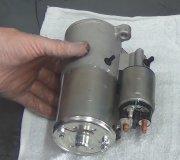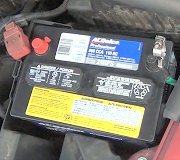Yup. Your definition of "crank" is the confusing part. "Crank" and "turn over" are the same thing. Both mean the engine is spinning thanks to the starter. Some people take "crank" to mean the engine starts and runs. Some people use "turns over" to mean the engine runs. Think back to the days of hand cranks for starting the engine. Hand cranking turned the engine over so the terms came to mean the same thing.
Based on the symptom, you might suspect the ignition switch or the automatic shutdown relay. The switches have given some problems due to overheated contacts but usually a different circuit is affected. Also, I would expect it to cause stalling problems while driving. The same is true of the ASD relay unless the contact is just sticking. A simple test for that is to switch it with a different identical relay under the hood. The AC compressor relay is a good choice.
Another possible cause is a fuel pump that is not starting up. They almost never stop once they are up and running so they won't cause an intermittent stalling problem, but when they don't start up, the engine will USUALLY run for a couple of seconds on stored fuel pressure before it stalls.
One more thing you might consider is fuel pressure bleeding down over time. The system should hold pressure for many weeks but if it bleeds down, the most common symptom is extended cranking time before the engine starts. It takes a few seconds for sufficient pressure to build up. In some cases, the low fuel pressure causes the initial no-start, and the lower battery voltage due to cranking causes the pump to run too slow to build sufficient pressure. A simple trick to identify this cause is when it doesn't start right away, stop cranking, turn the ignition switch off, wait a few seconds, turn the switch just to "run" but don't crank the engine. Wait a few seconds, turn the switch back off, wait a few seconds, then try to start the engine. By not cranking the engine the fuel pump will get full battery voltage so it will run properly. Every time you turn on the ignition switch, the pump will run for one second, then turn off. That is the reason you have to turn the ignition switch off and back on multiple times to get the pump to run long enough to build pressure.
If that trick helps the engine start right away, dropping fuel pressure can be verified by connecting a mechanical fuel pressure gauge and watching what happens over time. The most common cause of dropping pressure is a leaking fuel injector but a leaking pressure regulator or a leaking check valve in the pump can cause this too.
Caradiodoc
SPONSORED LINKS
Thursday, June 24th, 2010 AT 5:27 PM




